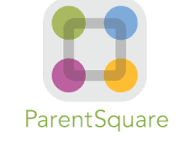Dive Brief:
- Universal preschool programs may be more cost-effective in the long run than targeted models because low-income children perform better in classrooms of students from homes with a wide range of incomes, according to a study, first published by the National Bureau of Economic Research in March 2017 and recently updated by Dartmouth College economist Elizabeth Cascio.
- The Hechinger Report discusses the impact of the study, which found that while universal preschool programs have a positive effect on the reading scores of children from low-income families, while targeted programs do not. The effect on math scores was not statistically significant and the study did not examine the effect of universal preschool on students from middle class homes.
- In 2017, 79% of voters responding to a First Five Years Fund poll favored more funding for early childhood education, which did receive greater funding under the most recent Trump budget.
Dive Insight:
The study adds to the growing body of research on the educational and economic benefits early childhood education. For example, a recent of analysis of 22 studies published in Educational Researcher showed that, “when young children participate in such programs, future placement in special education is reduced by 8.1%, grade retention drops by 8.3%, and high school graduation rates increase by 11.4%.”
Researchers have also examined the impact of preschool on closing the achievement gap. A study conducted by the National Institute for Early Education Research (NIEER) at Rutgers University found that the effects of two years in preschool program are “large enough to close about half the achievement gap between low-income children and their more advantaged peers.”
While many of these studies have focused on targeted preschool programs, the new study adds weight to arguments that universal models without income eligibility requirements are better. However, there are still those who question the true effectiveness of preschool education and argue against public funding for universal preschool. Some states, like Utah, are offering free online preschool education programs at home as a way to bridge the gap, and the Cato Institute, a free-market oriented think tank said, “Before policymakers consider huge expenditures to expand preschool, especially by making it universal, much more research is needed to demonstrate true effectiveness.”





 Dive Awards
Dive Awards






